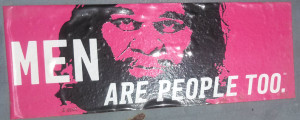Unfortunately, most civil asset forfeiture victims are not lucky enough for their mistreatment to go viral – Police Returned $53,000 They Took From a Christian Band, Orphanage, Church … After the Story Went Viral.
Make no mistake, the only reason the band got their money back is because the story went viral. Why did going viral make a difference? Because law enforcement doesn’t want to kill the goose that lays the golden egg. It’s worth sacrificing this $53,249 to preserve the flow of future income from the next victim whose story won’t go viral.
What makes this story unique is not the facts of the case, unfortunately, but that it went viral.
Eh Wah is a refugee from Burma, a Texas resident, and a citizen for more than 10 years. He’s a volunteer manager for a Christian rock band from Burma, Klo & Kweh Music Team.
Muskogee County, Oklahoma, police pulled him over for a broken tail light and found $53,000 in his car. That money was raised by the band, whose finances he managed. It was to be donated to a religious college in Burma, an orphanage in Thailand (money was “bundled in two or three dozen sealed envelopes with the orphanage’s name written on them”), and some was just for the operating costs of the band itself.
Ingraham noted that police “didn’t like Eh Wah’s explanation for how he got the cash.”
….
He was not charged with a crime, but his money was seized by police.
As shocking as this may sound, it’s unfortunately common. This is called “civil asset forfeiture.” It “allows law enforcement to seize and keep private property, even if the owner has never been charged with a crime,” according to the Institute for Justice (IJ). IJ argues, “No one should lose his or her property without being convicted of a crime.”
From the original Washington Post article, How police took $53,000 from a Christian band, an orphanage and a church, which has significantly more detail…
They took Eh Wah to the police station for more questioning. They let him drive his own car there, with deputies’ vehicles in front of and behind him the whole way. They interrogated him for several hours.
“I just couldn’t believe it,” Eh Wah said in an interview. “An officer was telling me that ‘you are going to jail tonight.’ And I don’t know what to think. What did I do that would make me go to jail? I didn’t do anything. Why is he saying that?”
Eh Wah tried to explain himself, but he had difficulty because English isn’t his first language. He says he had a hard time understanding the officers, and they had a hard time understanding him. He told them about the band and his role with it and how he had been entrusted with the cash. He even had the officers call one of the band’s leaders, Saw Marvellous Soe, who had decamped to Miami while the band was on a break.
Marvellous saw Eh Wah’s number on his phone, but when he answered, he was surprised to hear someone speaking with a thick Southern drawl that he could barely understand — “like in the movies,” Marvellous said in an interview.
“The police officer started asking questions,” Marvellous recalled. “I explained: ‘We are a music team. We came here for a tour.'” Marvellous tried to explain that the band was from Burma.
“He kept telling me, ‘You are wrong, you are wrong,'” Marvellous said. “Everything I said, [he said,] ‘You are wrong.’ I said: ‘We are doing a good thing! And now you are accusing us of being like a drug dealer or something like that.'”
But did they arrest Eh Wah? No, they just took his money.
The officers ended up taking all of the money — all $53,249 of it. “Possession of drug proceeds,” the property receipt reads. But they let Eh Wah go. They didn’t charge him with a crime that night, instead sending him back on the road about 12:30 a.m., with the broken tail light.
How nice of them.









